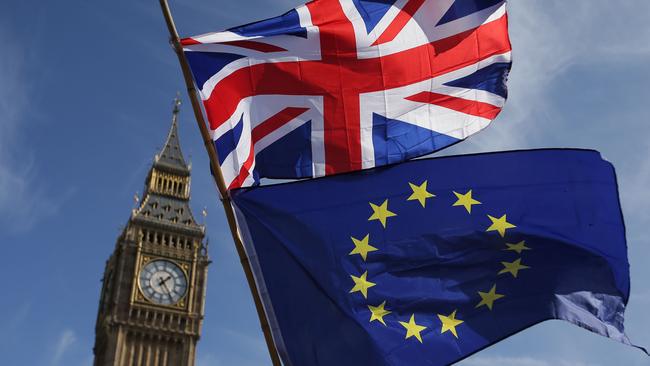Low bars and best intentions won’t make this Brexit deal work

For 28 months after I voted Remain in the 2016 referendum, I did my best as a government minister to make a success of our departure from the EU. All of us want to be able to look our constituents in the eye and say that leaving the EU will work out fine, but more and more of us, including several in the cabinet, are convinced we are heading for a poor outcome for the country.
We’re in the extraordinary position today where even the staunchest advocates of Brexit, including my brother Boris, publicly admit we’d be better off staying in the EU than with the Prime Minister’s deal. That’s why the argument the government will present for its hopeless package is not that it is better for Britain than our current membership.
Theresa May knows she cannot honestly make that claim and, to her credit, she refuses to do so. The only case she can try to make is that it is better than the alternative of leaving the EU with no deal at all. Well, that’s a low bar indeed. How have our ambitions for our country fallen this far this fast? We can and must do better.
That is why I appeal to every Conservative to be true to the tradition of our party, stand back from the mess this miserable process has become and ask themselves if the choice being offered to us between vassalage and chaos can truly represent the national interest.
On the one hand, the government is proposing a withdrawal agreement that will make it harder to create wealth, leave us with no influence over the EU rules we must follow and diminish us further on the world stage. On the other is the cliff-edge of a no-deal Brexit that no one who cares about Britain should seriously contemplate.
I cannot understand how it has come to pass that a Conservative government is presenting parliament with only two options: to become a servile vassal state of the EU or to suffer the chaotic and calamitous disruption that would follow a hard exit straight on to World Trade Organisation terms.
I am not going to be so pompous as to say I am putting country before party because that is another false choice. The interests are entirely aligned. Indeed, I believe the Conservative Party must now, for its own sake, quickly unite against this disastrous deal.
No one voted for a Brexit that would leave the UK with less control over its laws than it has already as a full member of the EU. No one voted for a Brexit that would reduce market access for our services sector. No one voted for a Brexit where the biggest questions remain unresolved and negotiations over a trade deal go on for years while our negotiating position becomes ever weaker.
I am concerned that a Conservative government is preparing to leave the British people ill-informed over the consequences, with the decision not to publish evidence showing this is a worse deal than the one we already have inside the EU. As a former cabinet minister, I struggle to see how this is not an abuse of civil service impartiality.
While the government is being tricksy to ensure its deal passes the house, some of my colleagues are playing parlour games of their own involving fantasy alternatives to a no-deal Brexit, such as temporary membership of the single market through the European Free Trade Association and European Economic Area as a stepping stone to a much harder Brexit.
This is a push-me, pull-you beast — think of a spangly unicorn with a head at each end of its body — that has been designed to attract support by telling different camps entirely conflicting and inconsistent messages.
Since there is zero chance of explaining it, let alone negotiating it, before the exit date, it is of course a distraction from the serious choices that we face.
Even if such a makeshift “Norway for now” arrangement was possible, I do not understand the point of another entirely self-defeating form of Brexit that requires the UK to follow European laws and regulations over which we will have no say.
The same is true of the nonsensical position spasmodically adopted by the Labour frontbench, under which a crack team of grown-ups led by Jeremy Corbyn would magically negotiate a deal with the “exact same benefits” of the single market while also ending freedom of movement. Unlike the current proposed deal, it is an untestable proposition because there is little prospect of MPs voting for a general election.
Jo Johnson is a Conservative member of the British parliament.
The Times



There may be some people who began campaigning for a second referendum on the morning of June 24, 2016, but I am not one of them.